2 0 1 3
 February 24 — Baltimore Historical Houses of Worship Locator – Stephen Conner
February 24 — Baltimore Historical Houses of Worship Locator – Stephen Conner
Before 1900, people walked to the nearest church. Find the address of an ancestor and you can use this locator utility to find the nearest church that may have records.
This is an online tool that helps users find their ancestor’s houses of worship. The utility also has links to online records at the Maryland Archives and FamilySearch.org.
http://connergenealogy.com/home/baltimore-city-houses-of-worship/
 March 24– Feather Ann Davis will speak about The Men from Wetheredsville, Baltimore County, Maryland Company “G” 4th Regiment Maryland Volunteer Infantry, United States Army War of 1861-1865.
March 24– Feather Ann Davis will speak about The Men from Wetheredsville, Baltimore County, Maryland Company “G” 4th Regiment Maryland Volunteer Infantry, United States Army War of 1861-1865.
More than 25 men from the mill village of Wetheredsville and the neighboring mill communities of Powhatan and Calverton voluntarily enlisted in a single Union infantry company, Company “G” of the 4th Regiment of the Maryland Volunteer Infantry. The soldiers of Company “G” suffered sickness, deprivation, gunshot wounds, loss of limbs, lifetime disabilities and for some, the ultimate toll, death, which all those who served in the wrenching war were at risk of suffering.
 April 28 — Sean Kief & Jeffrey Smith will speak about their new book – Perry Hall Mansion.
April 28 — Sean Kief & Jeffrey Smith will speak about their new book – Perry Hall Mansion.
This chronicle draws on over 200 years worth of images and personal accounts of surviving residents as well as original source documents. Books will be available for purchase, 50% of the proceeds of the sale will go to the Mansion fund.
–
 May 26 — Using Probate Records – Michael Hait, CG will discuss the process associated with the administration of testate and intestate estates. Example documents illustrate the various and detailed information that probate records can hold about our ancestors, their daily lives, and family relationships.
May 26 — Using Probate Records – Michael Hait, CG will discuss the process associated with the administration of testate and intestate estates. Example documents illustrate the various and detailed information that probate records can hold about our ancestors, their daily lives, and family relationships.
–
–
September 22 — Resources in and around Anne Arundel County – Betty DeKeyser
 The KUETHE LIBRARY includes holdings of both the Ann Arrundell County Historical Society and the Anne Arundel Genealogical Society. Although specializing in Anne Arundel County and Maryland material, its holdings encompass the eastern, central states as well as some western material among its 4,000 volumes. In addition to published material, the collection includes manuscripts, maps, photographs, genealogical, biographical and subject files, microfilm & fiche holdings.
The KUETHE LIBRARY includes holdings of both the Ann Arrundell County Historical Society and the Anne Arundel Genealogical Society. Although specializing in Anne Arundel County and Maryland material, its holdings encompass the eastern, central states as well as some western material among its 4,000 volumes. In addition to published material, the collection includes manuscripts, maps, photographs, genealogical, biographical and subject files, microfilm & fiche holdings.
–
October 27 — What’s new at FamilySearch.org – Dottie Aleshire
“FamilySearch, historically known as the Genealogical Society of Utah, which was founded in 1894, is dedicated to preserving the records of the family of mankind. Our purpose is simple—help people connect with their ancestors through easy access to historical records.”
 November 24 — Immigration – Robert Barnes
November 24 — Immigration – Robert Barnes
Bob Barnes, aged 74, is a retired educator with Baltimore City Public Schools. He has been doing research for over 60 years, and has written numerous books, articles, and book reviews. He is, or has been, active in the Maryland Genealogical Society, the Baltimore County Genealogical Society, and the Anne Arundel County Genealogical Society. He has a number of projects in the works, and has no plans to retire!
He and his wife Cathy have been married for 53 years, and have four children, five grandchildren, and numerous grand-dogs and grand-cats.
2 0 1 4
 February 23 — Thinking About Your Stuff: Estate Planning for Genealogists – Mary Mannix
February 23 — Thinking About Your Stuff: Estate Planning for Genealogists – Mary Mannix
Wonder what happened to that family bible? How about the graduation photographs of your grandmother? As a genealogist you’ve probably spent long hours wondering where the “stuff” belonging to your ancestors went. Not just the fun stuff but all the other stuff that provides documentation you are missing. What will happen to your stuff when you die? When you have joined your ancestors will your descendants know where to look for your photographs, the family artifacts in your care, and the results of your research? It is never too early to start planning about where everything will go, and time to start thinking about your stuff.
Mary has been active in the Maryland local history community since 1985. She is currently the Maryland Room Manager of the C. Burr Artz Public Library of the Frederick County Public Libraries, a position she has held since 1998. For eleven years she was the Library Director of the Howard County Historical Society. She has also held positions at the Lilienfeld Library of The Johns Hopkins School of Public Health and the Maryland Historical Society. She holds a Masters in Library Science from the University of Maryland, College Park and a Masters of Arts in American History from the University of Delaware with a certificate in Museum Studies. Her undergraduate degree is from Hood College, where she majored in History and Political Science. Mary is very active in MARAC (the Mid-Atlantic Regional Archives Conference – the professional association for archivists in this area) and is in her third term as Vice Chair. She has been very involved in the History Section of the American Library Association. Mary was the 2011 winner of ALA’s Genealogical Publishing Company Award for service to the profession. She teaches genealogy librarianship at the University of Maryland and public history courses at Hood College.
 March 23 — Researching Your Civil War Soldier – Debra Hoffman
March 23 — Researching Your Civil War Soldier – Debra Hoffman
AUDIENCE LEVEL: Beginner.
Learn the resources for researching your Civil War soldier. Two case studies — one Union and one Confederate — will illustrate the information that can be found.
Debra A. Hoffman has been researching her family history for the past thirty-five years. She has completed the National Genealogical Society s American Genealogy Home Study Course and completed Brigham Young University s Certificate in Family History. Additionally, she has completed Courses 3 (Research in the South, Part I), 4 (Advanced Methodology and Evidence Analysis) and 5 (Writing and Publishing for Genealogists) at the Institute of Genealogy and Historical Research (IGHR) held at Samford University. She also completed Course 3 (Advanced German Research) at the Salt Lake Institute of Genealogy. She is a member of numerous genealogical societies as well as the William Winchester Chapter of the Daughters of the American Revolution. (Source: http://www.apgen.org)
 April 19, Saturday — Special Genealogy Seminar with Curt Bryan Witcher
April 19, Saturday — Special Genealogy Seminar with Curt Bryan Witcher
- Mining the Mother Lode: Using Periodical Literature for Genealogical Research
- Passenger and Immigration Research
- More Than Surname Surfing: Best Practices for Using the Internet for Genealogists
Curt Bryan Witcher is the Senior Manager for Special Collections at the The Allen County Public Library Genealogy Center in Fort Wayne, Indiana where he manages The Genealogy Center, serves as general curator for the institution’s Rare and Fine Book Collection, and is the Supervisor for the Lincoln Financial Foundation’s Lincoln Library Collection. Curt is the project lead on the library’s digitization initiatives–initiatives that include partnerships with the FamilySearch International, the Internet Archive, ProQuest, Fold3, and WeRelate–as well as growing a site of free, searchable data files at GenealogyCenter.org. He has worked at Allen County Public Library for more than thirty-four years.
 May 25 — Finding Family History at the Baltimore City Archives – Malissa Ruffner
May 25 — Finding Family History at the Baltimore City Archives – Malissa Ruffner
Malissa gave a brief history of BCA – from the earliest days to its current association with the Maryland State Archives – and give an overview of its holdings. She will describe the kind of genealogical information you might find, how to prepare for a research visit, and what to expect when you arrive.
Malissa holds an MLS degree and worked as an archivist before heeding the call of genealogy. She was a volunteer at BCA for several years and has conducted personal and client research on-site. She currently serves as an at-large board member of the Maryland Genealogical Society and launched its Facebook page last April.
 September 28 — A Case Study: Connecting the Dots – Bill Amos
September 28 — A Case Study: Connecting the Dots – Bill Amos
A step by step progression using several genealogical tools to come up with an interesting story. By connecting the dots — FACTS — an interesting picture emerges.
Bill Amos retired after 40 years as an analyst with the Central Intelligence Agency (CIA). Because of his geographic and analytical background he became enamored with genealogy about 30 years ago. The principles of collecting and analyzing foreign intelligence are very similar to collecting and analyzing genealogical data. Mr Amos has 30 years experience in genealogy and finds that there is an almost universal interest in knowing where you came from and a natural curiosity about your background.
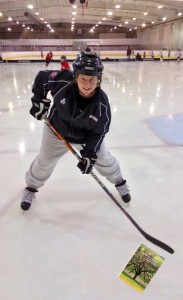 October 26 — Google For Genealogists – Margaret McMahon
October 26 — Google For Genealogists – Margaret McMahon
Join Dr. Margaret M. McMahon to learn how to search for ancestors using Google and its tools. You will learn how to construct searches to look for your ancestors on the web and be introduced to the use of selected search techniques.
Margaret is the hockey-playing genealogist. She has a PhD in Computer Science and Engineering, and with the advent of parenthood, she turned her technical talents to researching her family’s genealogy. She has over twenty-five years of engineering experience, including being a college and graduate school professor. She is an experienced presenter at national and international technical conferences.
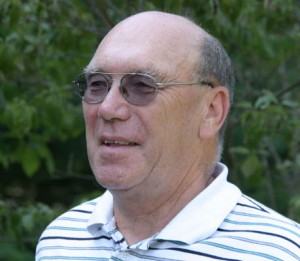 November 23 — Baltimore German Catholic Churches – John Foertschbeck
November 23 — Baltimore German Catholic Churches – John Foertschbeck
John is a member of the Maryland Genealogical Society, Maryland Historical Society, Carroll County Genealogical Society, Carroll County Community Media Center, Historical Society of Carroll County, Mt. Airy Historical Society. John is a member, and was the Baltimore chapter president, region president and a national director of the Association of Information Technology Professionals (AITP) (formerly DPMA).
2 0 1 5
 March 22 — The Cyber-Library: Primary Documents and Books Online.
March 22 — The Cyber-Library: Primary Documents and Books Online.
Sandy Clunies
Join Sandy Clunies in a discussion about finding documents, books and newspapers online. Tips and tricks are offered to help you find what you need online.
About Sandy Clunies
Sandy Clunies has been certified by BCG since 1993 and has served as President of the National Capital Area Chapter of APG and on the APG Board of Directors. A past winner of the NGS Family History Writing Contest and the APG Grahame T. Smallwood Award of Merit, she currently serves as an officer for several lineage societies at the state and national level.
 April 25, Saturday — Spring Seminar.
April 25, Saturday — Spring Seminar.
John Colletta
John Colletta will give four presentations.
- Passenger Arrival Records, Colonial Times- Mid 20th Century
- US Naturalization Records, 1790-1930’s
- Library of Congress: An Introduction and Overview
- Using 19th Century Newspapers for Family History.
The seminar is planned to be held in our LIBRARY. There is an admission fee and there is LIMITED SEATING.
About John Colletta
John Philip Colletta is one of America’s most popular genealogical lecturers. Knowledgeable, experienced and entertaining, he resides in Washington, D.C. For twenty years, while laying the foundation for his career in genealogy, he worked half-time at the Library of Congress and taught workshops at the National Archives. Dr. Colletta appears frequently on podcasts and local and national radio and television. He is featured in Episode Four of “Ancestors,” the ten-part KBYU-TV series, as well as its sequel. He has received many professional honors, including fellowship in the Utah Genealogical Association and distinguished service awards from the Dallas Genealogical Society and the National Society, Daughters of Colonial Founders and Patriots.
 May 24 — The ABCs of DNA for Genealogy.
May 24 — The ABCs of DNA for Genealogy.
Eileen Souza
- What is DNA?
- What types of DNA are used for genealogy?
- What are their strengths and weaknesses?
- How do I know what test to take?
- Well, I got my results, now what?
If you have asked yourself these questions or If the highly technical nature of most DNA talks confuses you – then THIS PRESENTATION IS FOR YOU.
As the name implies, this presentation will answer your questions using a non-technical, genealogy – oriented approach. It will also address what DNA does not do to help set your expectations.
About Eileen Souza
Eileen Souza, PLCGS, owner of Old Bones Genealogy, is a professional genealogist who specializes in Maryland research. She is president of the Carroll County Genealogical Society, a member of the Association of Professional Genealogists, the National Genealogical Society, the Maryland Genealogical Society and other local business and genealogical societies.
Eileen is a graduate of the National Institute of Genealogical Studies, earning a Professional Learning Certificate in Genealogical Studies; a graduate of the National Institute of Genealogical Research; and a graduate of the ProGen Study Group.
She is the author of Research in Carroll County, published in the August 2012 issue of the Maryland Genealogical Society Journal.
 Sunday, September 27, 3 pm — Brick Walls.
Sunday, September 27, 3 pm — Brick Walls.
Debra Hoffman
Learn genealogical research techniques and strategies to move beyond your brick wall and continue exploring your family history.
About Debra Hoffman
Specializing in Maryland and German research, Debra A. Hoffman is a professional genealogist and the owner of Hoffman Genealogical Services. She has a certificate in Family History from Brigham Young University and, since 2009 she has completed courses at the Institute of Genealogy and Historical Research, the Salt Lake Institute of Genealogy and at the Genealogical Research Institute of Pittsburgh. Debra is a member of the Association of Professional Genealogists and belongs to the William Winchester Chapter of the Daughters of the American Revolution as well as many other state and local genealogical societies.
 October 25 — Baltimore’s First Century.
October 25 — Baltimore’s First Century.
Wayne Schaumburg
Trace the history of Baltimore from its founding in 1729 through the War of 1812. We will look at the developments that transformed Baltimore Town from a sleepy village on the Patapsco River to a major American city by 1820, with emphasis on the people, places and events responsible for our amazing growth. We will look at how Baltimore came to be in 1729 and will discover that its early history was actually a tale of three towns: Baltimore Town, Jonestown and Fell’s Point – each with an important role to play.
Learn Baltimore’s role in the American Revolution and the War of 1812 and how we earned the nickname of “that nest of pirates on the Chesapeake.” Finally, we will look at the architectural heritage of this period and those buildings that are still standing today, which include Mt. Clare Mansion, St. Paul’s Rectory, Otterbein Church, the Flag House, Carroll Mansion, the Old Town Quaker Meeting House, Homewood Mansion, St. Mary’s Chapel, the Battle Monument and others.
 November 22 — Enoch Pratt Library
November 22 — Enoch Pratt Library
Malissa Ruffner
Malissa will give an overview of the holdings of the Enoch Pratt State Library Resource Center that are most important to genealogists, highlight offerings that be accessed from home, and provide useful tips for making a trip to the historical Central Branch.
About Malissa Ruffner
Malissa Ruffner has been seriously researching her own family since attending Bob Barnes’ four introductory sessions at the Maryland Historical Society in 2009. She holds a J.D. from the University of Maryland, Baltimore, and an M.L.S. from the University of Maryland, College Park. As an archivist, she worked on projects at Goucher College, Hampton National Historic Site, and the University of Maryland, University Archives. She was certified by the Board for Certification of Genealogists® in September of 2014 and serves as Vice-President of the Maryland Genealogical Society.
2 0 1 6
February 28 — Harford County
Jon Livezey
The Specifics and Peculiarities of Genealogy Research in Harford County, MD, a lot applicable to all of Maryland, with attention to recent developments affecting how one approaches the subject.
About Jon Livezey
Jon is a native and lifetime resident of Aberdeen, graduate of Aberdeen High School, the Johns Hopkins University, and University of Maryland School of Law; retired lawyer with probate and real estate practice in Harford County; past president of Harford County Bar Association; served in JAG Corps, US Army, member of Maryland House of Delegates 1971-75; researching Harford County area families for over 60 years; founder and past president of Harford County Genealogical Society, compiler of several of its publications; past president and fellow of the Maryland Genealogical Society; has lectured at several National Genealogical Society conferences; active with Aberdeen Room Archives & Museum, past president of Historical Society of Harford County; author of articles in Maryland Genealogical Society Bulletin and Journal, including recent article on Harford County research.
March 20 — Producing a Reliable Family History
Adrian J. Gravelle
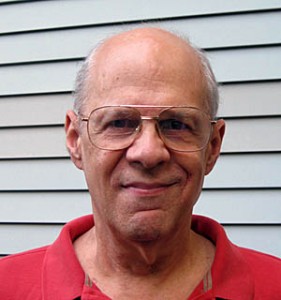 An Appellate Judge Discusses Genealogical Evidence
An Appellate Judge Discusses Genealogical Evidence
This presentation includes a discussion of guidelines for evaluating genealogical evidence, and suggests methods of resolving conflicts in evidence. Topics will include how to think and write like a judge in producing a reliable and accurate family history, how legal standards and concepts can be applied to genealogical research, and the current standard of proof used by the genealogical community.
–
 April 16 – Spring Seminar
April 16 – Spring Seminar
Dick Eastman will present four topics:
- Going Nearly Paperless – How to Get Started”
- Using MyHeritage.com Effectively”
- The Family History World in 10 Years’ Time”
- The Organized Genealogist”
–
Sunday, May 22
18th Century Newspapers – Bob Barnes
 What Can Be Found in 18th Century Newspapers Besides Marriages and Deaths.
What Can Be Found in 18th Century Newspapers Besides Marriages and Deaths.
About Robert Barnes
Bob Barnes, is a retired educator with Baltimore City Public Schools. He has been doing research for over 60 years, and has written numerous books, articles, and book reviews. He is active in the Maryland Genealogical Society, the Baltimore County Genealogical Society, and the Anne Arundel County Genealogical Society. He has a number of projects in the works, and has no plans to retire.
–
September 25, 3 pm — Ancestors in the U. S. Military: Online and in Military Archives.
Dr. Margaret McMahon
 Learn how to use online resources to locate information about your ancestors’ US Military service. The discussion will include information about how to use military archives in your research.
Learn how to use online resources to locate information about your ancestors’ US Military service. The discussion will include information about how to use military archives in your research.
About Dr. McMahon
Margaret is the hockey-playing genealogist. She has a PhD in Computer Science and Engineering, and with the advent of parenthood, she turned her technical talents to researching her family’s genealogy. She has over twenty-five years of engineering experience, including being a college and graduate school professor. She is an experienced presenter at national and international technical conferences
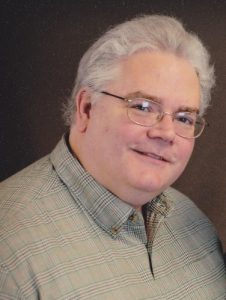 October 23, 3 pm –The Irish Railroad Workers’ Museum
October 23, 3 pm –The Irish Railroad Workers’ Museum
Luke McCusker
- Establishment of the Museum
- Description of our Museum’s mission and focus
- Genealogy activity of the Museum
- Museum’s research of the Feeley family: discoveries and results
- Family History of our visitors: Railroading and Irish emphases
- Q & A
About Luke McCusker
Luke F. McCusker is a Baltimore native, graduating from the University of Baltimore, B.A. History. His passion for local and state history has grown during work experiences at the Historical Society of Baltimore County, Pratt Library’s Maryland Department and an internship at the Maryland State Archives. Luke has been both a docent and published author with the Maryland Historical Society, and became Managing Director of the Irish Railroad Workers Museum in 2013.
 November 27 — Obituaries – A Treasure Trove for Genealogists
November 27 — Obituaries – A Treasure Trove for Genealogists
Adrian J. Gravelle
This presentation will include:
- A short history of obituaries
- A discussion of their reliability in genealogical research
- The importance of obituaries in genealogical research
- Techniques for finding obituaries on the Internet
- Internet tools used in conjunction with obituaries
- Understanding the wording in obituaries
- Examples of good, bad, humorous and not-so-humorous obituaries.
About Adrian J Gravelle:
Adrian J. Gravelle has been a lawyer for forty-seven years and has spent most of his time in the practice of criminal law in the Army.
Colonel Gravelle served the last seven years of his military career as an appellate judge on the U.S. Army Court of Criminal Appeals, Falls Church, Virginia.
He began researching his own family history thirty-six years ago as a hobby.
Since retiring seventeen years ago, he has been a full-time genealogy researcher, specializing in French-Canadian research.
He is an occasional instructor on subjects ranging from French-Canadian research to genealogical evidence and proof standards.
Adrian is an active volunteer at the LDS Family History Center in Columbia, Maryland.
2 0 1 7
Civil War Parole Camps of Annapolis, Maryland
Rebecca Morris, of Anne Arundel Co. Historical Society
 FEBRUARY 26, SUNDAY, 3 PM
FEBRUARY 26, SUNDAY, 3 PM
In 1862, Annapolis became the main depot on the east coast for Union prisoners released on parole by the Confederacy.
The camps, and the army regiments stationed in and around the city, changed Annapolis from a sleepy market town to an overcrowded city filled with thieves, murderers, and prostitutes.
This presentation will discuss the creation of the parole camps and the stories of the men who came there, a fascinating but little known facet of local history in Anne Arundel County.
About Rebecca Morris:
Rebecca Morris is a resident of Annapolis with a life-long interest in local history particularly that of the Civil War era. She has served on the Board of Directors of the Ann Arrundell County Historical Society for the past five years and is currently the Treasurer of that organization. She is the author of the book, “A Low, Dirty Place – The Parole Camps of Annapolis, MD 1862 -1865” and is a frequent speaker at local civic and historical society meetings. Ms. Morris is a 1971 graduate of the University of Maryland.
Researching Western Maryland Families
Mary Mannix
 MARCH 26, SUNDAY, 3 PM
MARCH 26, SUNDAY, 3 PM
Research regarding families in the areas of Carroll County to the end of the state and south to Montgomery County and will include an overview of the resources, institutions, things to keep in mind when doing this kind of research.
About Mary Mannix:
Mary has been active in the Maryland local history community since 1985. She is currently the Maryland Room Manager of the C. Burr Artz Public Library of the Frederick County Public Libraries, a position she has held since 1998. For eleven years she was the Library Director of the Howard County Historical Society. She has also held positions at the Lilienfeld Library of The Johns Hopkins School of Public Health and the Maryland Historical Society. She holds a Masters in Library Science from the University of Maryland, College Park and a Masters of Arts in American History from the University of Delaware with a certificate in Museum Studies. Her undergraduate degree is from Hood College, where she majored in History and Political Science. Mary is very active in MARAC (the Mid-Atlantic Regional Archives Conference – the professional association for archivists in this area) and is in her third term as Vice Chair. She has been very involved in the History Section of the American Library Association. Mary was the 2011 winner of ALA’s Genealogical Publishing Company Award for service to the profession. She teaches genealogy librarianship at the University of Maryland and public history courses at Hood College.
S P R I N G S E M I N A R
April 29, Saturday, 8:30 am – 1:00 pm
- Baltimore: The Golden Door for Immigrants by Debra Hoffman
Baltimore was a major entry point for immigrants to America.
Learn about its history and the sources available to document individuals who arrived through this port.
- The Dead and Dying: Cemeteries, Funeral Homes, and Obituaries by Rebecca Whitman Koford
Get into the spirit of cemetery research by introducing a few superstitions that motivated our ancestors’ understanding of death and the afterlife.
Next we discuss records of death outside of traditional death certificates, funeral home records, and touch on the importance of finding obituaries.
Lastly we look at cemeteries and headstone iconography and how to prepare for a visit to the cemetery.
- Are You My Grandpa?: Men of the Same Name by Rebecca Whitman Koford
This lecture is for all of us who discover that their ancestor has a name in common with someone else in their community.
We discuss techniques for comparing and contrasting the records of these people in order to separate our ancestors with another line.
Case studies are included throughout the lecture with a focus on Maryland and Baltimore records.
VIEW THE REGISTRATION FORM AND FLIER AT THIS LINK → SPRING SEMINAR
 About Rebecca Whitman Koford:
About Rebecca Whitman Koford:
Rebecca holds a Certified Genealogist® credential. Her focus is in American research with special emphasis in Maryland. She has been interested in genealogy ever since the age of five, when she could read her parents’ collection of old handwritten family group sheets. Rebecca has been taking clients and lecturing since 2004. She has spoken for the National Genealogical Society Conference, Maryland State Archives, and for groups in Maryland, Virginia, New Jersey, Pennsylvania, Washington, D.C., and Delaware. She is a board member of the Maryland Genealogical Society and volunteers at the Family History Center in Frederick, Maryland. She has published articles in the NGS Magazine and the Maryland Genealogical Society Journal. She is a graduate of the ProGen Study Group, an online peer-led study program based on the book Professional Genealogy by Elizabeth Shown Mills; she was appointed ProGen Administrator in January 2015. Rebecca is currently very enthusiastic about the Society of Preservation Patriots project sponsored by FGS, an effort to digitize original military records from the National Archives. Rebecca lives in Mt. Airy, Maryland, with three active teenagers and a very patient husband.
 About Debra Hoffman:
About Debra Hoffman:
Debra A. Hoffman has been researching her family history for the past thirty-five years. She has completed the National Genealogical Society s American Genealogy Home Study Course and completed Brigham Young University s Certificate in Family History. Additionally, she has completed Courses 3 (Research in the South, Part I), 4 (Advanced Methodology and Evidence Analysis) and 5 (Writing and Publishing for Genealogists) at the Institute of Genealogy and Historical Research (IGHR) held at Samford University. She also completed Course 3 (Advanced German Research) at the Salt Lake Institute of Genealogy. She is a member of numerous genealogical societies as well as the William Winchester Chapter of the Daughters of the American Revolution. (Source: http://www.apgen.org)
Holdings of Anne Arundel County’s Kuethe Historical and Genealogical Research Library
Carolyn Russell
 MAY 28, SUNDAY, 3 PM
MAY 28, SUNDAY, 3 PM
The KUETHE LIBRARY includes holdings of both the Ann Arrundell County Historical Society and the Anne Arundel Genealogical Society.
Although specializing in Anne Arundel County and Maryland material, its holdings encompass the eastern, central states as well as some western material among its 4,000 volumes.
In addition to published material, the collection includes manuscripts, maps, photographs, genealogical, biographical and subject files, microfilm & fiche holdings.
About Carolyn Russell:
Carolyn is the genealogical librarian for the Kuethe Historical and Genealogical research center in Glen Burnie, Maryland. A retired Anne Arundel County teacher having taught science thirty-two years at Severna Park High School, Carolyn has been researching both her and her husband’s families for over 40 years. Carolyn is active in the Anne Arundel Genealogical Society, Odenton Genial Genealogical Society, and is a member of the Daughters of the American Revolution, Mid Atlantic Genealogical Society, and Anne Arundel County Historical Society.
Researching your WWI Army Ancestors
Dr Margaret McMahon
 SEPTEMBER 24, SUNDAY, 3 pm
SEPTEMBER 24, SUNDAY, 3 pm
- This year marks the centennial of U.S. involvement in the War to End All Wars (World War I).
- Learn more about the military service of your dough-boy ancestors using online databases, repositories, social networking and other resources
- Get ideas for sharing what you learn.
About Dr Margaret McMahon:
Margaret is the hockey-playing genealogist. She has a PhD in Computer Science and Engineering, and with the advent of parenthood, she turned her technical talents to researching her family’s genealogy. She has over twenty-five years of engineering experience, including being a college and graduate school professor. She is an experienced presenter at national and international technical conferences.
 The Baltimore City Archives and its holdings
The Baltimore City Archives and its holdings
Rob Schoeberlein
OCTOBER 22, SUNDAY, 3 pm
About Rob Schoeberlein:
Mr. Schoeberlein is the Acting Baltimore City Archivist. He earned his Ph.D. in American Studies from the University of Maryland College Park. Rob has twenty-five years of research and archives experience and has published on topics ranging from Baltimore Civil War era history to twentieth century reform movements. His former positions include the Director of Special Collections at the Maryland State Archives and the Curator of Prints and Photographs at the Maryland Historical Society (MdHS). He is a MdHS Trustee and currently chairs the Library Committee.
 Dead Men Tell No Tales, But Probate Talks
Dead Men Tell No Tales, But Probate Talks
Malissa Ruffner
NOVEMBER 26, SUNDAY, 3 pm
- Probate—the distribution of assets after earthly life—is all about kinship.
- Malissa will discuss the probate process, the variety of records it generates and how to find them, and share examples of genealogical discovery that speaks volumes.
About Malissa Ruffner
Malissa Ruffner has been seriously researching her own family since attending Bob Barnes’ four introductory sessions at the Maryland Historical Society in 2009. She holds a J.D. from the University of Maryland, Baltimore, and an M.L.S. from the University of Maryland, College Park. As an archivist, she worked on projects at Goucher College, Hampton National Historic Site, and the University of Maryland, University Archives. She was certified by the Board for Certification of Genealogists® in September of 2014 and serves as Vice-President of the Maryland Genealogical Society.
2 0 1 8
A Genealogy Case Study
David Powell
 FEBRUARY 25, SUNDAY, 3 pm
FEBRUARY 25, SUNDAY, 3 pm
Mr. Powell will share with our group his experiences in researching his Mother-in-Law over an eight year period and spanning from Baltimore City to southern Poland.
Special emphasis will be made on the methods used and the web sites used to discover her family tree from 2009 to 1790.
About Mr. Powell:
Mr. Powell has been researching his own family history for over 25 years and is the current President of the Baltimore County Genealogical society as well as a member of their Board of Directors. He is also a member of the Maryland Genealogical Society.
Mr. Powell also teaches beginning genealogy courses at local senior centers, libraries and the Community College of Baltimore County.
Mr. Powell retired as Vice President and Chief Information Officer for AAI Corporation in 2007. He holds a BA degree in Economics and a Master’s degree in Information Management. He has been active in various boards and forums in the Mid-Atlantic region for information systems curriculum development and Information Technology networking and electronic commerce.
Genetic Genealogy: Understanding and Applying Your Test Results
Andy Hochreiter
 MARCH 25, SUNDAY, 3 pm
MARCH 25, SUNDAY, 3 pm
Genetic genealogy has emerged as an important tool for genealogists and family historians.
During this session, Mr. Hochreiter will discuss how to understand and analyze results from DNA tests and how to use the results to find family and apply the findings to genealogical research.
About Andrew Hochreiter:
is an experienced genetic genealogist who manages DNA surname projects, frequently attends professional genetic genealogy courses and conferences, and has successfully applied DNA in tracing several related family branches overseas.
Preserving for the Next Generation
Mike Boivin
 APRIL 22, SUNDAY, 3 pm
APRIL 22, SUNDAY, 3 pm
Learn how to preserve documents, photos and other important items.
Mr. Boivin will include suggested scanning settings for documents and photos, storing both original documents and photos as well as electronic files.
He will also cover planning for what is to happen to your genealogical files, data, etc. after your death.
Michael (Mike) R. Boivin Sr.
Mike been working on his genealogy for over 40 years with a primary focus on French Canada and New England. He teaches genealogy classes in Laurel and is the Director of the Genealogy Group at the Laurel Historical Society. He is a member of National Genealogy Society, New England Historic Genealogical Society, American-Canadian Genealogical Society (for his father’s side), Irish Genealogical Society International (for his maternal side) and the New Hampshire Genealogists Society.
He received his BS in Business from University of Maryland and a MBA from Keller Graduate School of Management. A retired hospital administrator he spends his “free time” teaching, reading, researching his family tree and traveling.
Maryland Land Records
Barb Henry
 MAY 27, SUNDAY, 3 pm
MAY 27, SUNDAY, 3 pm
Learn the value of using Maryland land records in your research.
Also discover other “non-land” information that can be found in land records.
Barb will also cover other resources to help locate land records.
Barbara Henry:
Barb has been researching since 2000 and have very deep Maryland roots, with several lines dating back to the late 1600s/early 1700s. She is a member of BCGS (vertical file manager), Historical Society of Baltimore County, Historical Society of Harford County, the Maryland Genealogical Society and the Maryland Historical Society. She is also active in several local discussion groups where she presents topics on various genealogical topics.
She has an A.S. in Civil Engineering from CCBC and is currently a CADD Manager for Gannett Fleming, Inc. In her free time she enjoys cruising, golf and doing family research.
Baltimore’s Great Wave of Immigration
Nick Fessenden
 SEPTEMBER 23, Sunday, 3 pm
SEPTEMBER 23, Sunday, 3 pm
It is a little known fact that during the Great Wave of Immigration from 1830 to 1914, 1.5 million immigrants landed in Baltimore, America’s third largest port of entry.
Nicholas will describe the stories of the major groups who came to Baltimore, Germans, Irish, and Jews, as well as Poles, Lithuanians, Czechs, and Italians.
He will discuss why the immigrants left their homelands, how they crossed the Ocean, and how they fashioned new lives in their adopted country.
Syllabus in PDF format→ GREAT WAVE
Nicholas Fessenden
Nicholas Fessenden earned a B.A. in History at Yale, and an M.A. and Ph.D. in 1972 from Columbia University, also in History. He taught History in the Upper School at Friends School of Baltimore (1972-2010), as well as History at Maryland Institute of Art (1981-2000) as an adjunct. Since retirement in 2010, he has taught at CCBC/Owings Mills and at the Osher Institute at Towson University. He serves on the board of the Baltimore Immigration Memorial, which opened a museum in Locust Point two years ago, chronicling Baltimore’s immigration’s history. We at the museum have welcomed visitors from the public at large, as well as from schools, colleges, retirement communities, and genealogical societies.
Maps & Land Records
Mike Pierce
 OCTOBER 28, Sunday, 3 pm
OCTOBER 28, Sunday, 3 pm
The talk will cover the use of maps and land records to help identify ancestors, and to fill in interesting details about their lives.
Depending on the desires of those in attendance, it can get into Baltimore genealogy records that are available online.
The focus will be on the information that Mike has included on his website, map-maker.org.
Mike Pierce:
Mike has always been interested in both maps and family history and has lived in the Baltimore area for the past 23 years. Following a career in telecommunications, he is now able to spend full time on these hobbies and sharing the results with others. One big project was mapping all of the early Baltimore County land grants.
Baltimore and the Great War (World War I)
Wayne Schaumburg
 November 25, Sunday, 3 pm
November 25, Sunday, 3 pm
Join Baltimore historian and educator Wayne R. Schaumburg for an illustrated program on Baltimore’s role in World War I.
The talk will focus on a number of different aspects of the conflict including the men and women who served in military and civilian positions.
Baltimore war industries from the manufacturing of cotton duck in Hampden to the shipyards pf Bethlehem Steel played a major part in the war effort.
Johns Hopkins Hospital would establish the first medical treatment center in France.
Four present-day military installations began during the war: Camp Meade, Aberdeen Proving Grounds, Edgewood Arsenal, and Camp Holabird.
We will also take a look at some of the local heroes of the conflict as well as monuments and memorials to “The Great War” that can be found all around Baltimore.
Wayne Schaumburg
Born and raised in the Waverly section of Baltimore, Wayne R. Schaumburg graduated from Baltimore City College in 1964. He attended Towson University where he majored in both history and geography. Wayne also has a Masters Degree in history from Morgan State University, and a Masters of Liberal Arts Degree from Johns Hopkins University.
He taught social studies in the city school system for 39 years before retiring in June, 2007. Currently, Wayne teaches courses on Baltimore history part-time for Towson University, Notre Dame of Maryland University, Johns Hopkins University, Community College of Baltimore County, and the Roland Park Country School. He also maintains a web site on events relating to the city’s history (http://www.waynesguidetobaltimore.com).
Wayne has been giving tours and illustrated lectures on Baltimore history for over 35 years covering a variety of topics from architecture to the Great Baltimore Fire. For the last 33 years, he has led walking tours through one of his favorite Baltimore landmarks: Green Mount Cemetery. His hobbies include collecting old postcards and photos of Baltimore as well as an on-going interest in the Great Baltimore Fire of 1904.
At the present time, Wayne lives in Perry Hall and serves on the boards of Baltimore Heritage, the Friends of Perry Hall Mansion, the Clifton Mansion Salon, and the Star-Spangled Banner Flag House. His son Tim is a graduate of both Goucher College and Loyola University of Maryland. He teaches for the Baltimore County school system. Wayne’s daughter Jennifer is a graduate of St. Mary’s College of Maryland and the University of Swansea in Wales. She currently works for a medical service company in Pennsylvania.
2 0 1 9
Baltimore Prohibition – Wet & Dry in the Free State
Michael T. Walsh
 FEBRUARY 24, SUNDAY, 3 pm
FEBRUARY 24, SUNDAY, 3 pm
For a period of thirteen years (1920-1933) during the Roaring 1920s and Jazz Age, national Prohibition was the law of the land.
Though the 18th Amendment had its share of supporters and opponents, there was perhaps no region more opposed to Prohibition than Baltimore and Maryland.
The Free State was defiant in its protest from thoroughly wet Governor Albert Ritchie to esteemed Catholic Cardinal James Gibbons.
Maryland was the only state to not pass a baby Volstead enforcement act.
Speakeasies emerged at Frostburg’s Gunter Hotel and at Baltimore’s famed Belvedere Hotel, whose famous owls’ blinking eyes would notify its patrons if it was safe to indulge in bootleg liquor.
Rum-runners were frequent on the Chesapeake Bay as bootleggers populated the city streets.
Journalist H.L. Mencken, known as the “Sage of Baltimore,” drew national attention criticizing the new law.
Author Michael T. Walsh provides a fascinating journey into the history of Prohibition in the “Free State”, from its origins in the 19th century through its repeal in 1933.
Michael T Walsh:
Dr. Michael Walsh, a native of Baltimore, Maryland, is a historian who specializes in both twentieth-century U.S. History as well as local history. Michael majored in History and received his undergraduate degree from Loyola University Maryland. He obtained a Master’s degree in Historical Studies at University of Maryland Baltimore County (UMBC) and subsequently earned his Ph.D. at UMBC in Public Policy with a concentration in Policy History.
Michael currently teaches U.S. History as an Adjunct History Professor at the Community College of Baltimore County and is also a Grants & Contracts Manager/Training Coordinator at UMBC. You can be certain to find him at many events and live music venues throughout Maryland as he rumbles on his bass guitar and provides vocals with two regional rock and roll bands, Whisky Train and The Agitators. Michael currently resides with his wife Jennifer, daughter Elizabeth and pet Australian Shepherd Mugsy in the Parkville community in Baltimore County.
Exploring Sanborn Fire Insurance Maps
Barbara Henry
 MARCH 24, SUNDAY 3 pm
MARCH 24, SUNDAY 3 pm
Sanborn fire insurance maps are a genealogy resource often overlooked by genealogists.
Although originally developed to assist insurance companies assess risk of coverage, these maps contain a wealth of information useful in family research.
This presentation will cover the history of Sanborn maps as well as where you can find them, how to read them and how to use them in your research.
Barb Henry:
Barb has been researching since 2000 and has very deep Maryland roots, with several lines dating back to the late 1600s/early 1700s. She is a member of BCGS (vertical file manager), Historical Society of Baltimore County, Historical Society of Harford County, the Maryland Genealogical Society and the Maryland Historical Society. She is also active in several local discussion groups where she presents on various genealogical topics. She has an A.S. in Civil Engineering from CCBC and is currently Corporate CADD Manager for Johnson, Mirmiran and Thompson. In her free time she enjoys cruising, golf and doing family research.
The Next Step: Using Technology to Share Your Family History
Amanda Hughes
 April 28, SUNDAY 3 pm
April 28, SUNDAY 3 pm
Join Amanda, Assistant Manager of the Pratt Library’s Maryland Department, for a discussion of various technologies and platforms available to help genealogists in sharing their research.
You will learn about various programs and platforms including wikis, websites, and social media, along with a few simple ways to self-publish your family history both digitally and in print.
Amanda will also give a short talk on the genealogical resources at Enoch Pratt.
Amanda Hughes
For the past ten years, Amanda has worked in museums, archives and libraries in Virginia, North Carolina, California and Maryland. Her current home is the Maryland Department of Enoch Pratt where she is the Assistant Manager. Amanda’s special passions are women’s history and the personal stories of ordinary people in extraordinary circumstances. She read incessantly and indiscriminately but especially loves science fiction, graphic novels and memoirs, usually all at the same time. In her (very little) spare time she enjoys hiking, kayaking, baking and knitting. Amanda currently lives in Baltimore County with her husband, three cats, two daughters, one dog and a partridge in a pear tree.
Do You Have an Artificial Brick Wall?
Robyn N Smith
 MAY 26, SUNDAY 3 pm
MAY 26, SUNDAY 3 pm
Genealogists are famous for their brick walls. However, many of the things we call “brick walls” are more likely the result of some common errors, such as relying too heavily on the Internet, not reviewing original sources and focusing too closely on only the person or couple of interest. These create what Ms. Smith calls “artificial” brick walls and in this lecture, Ms. Smith describes these errors along with others. Developing better practices and learning new skills will go a long way towards solving many of our genealogical problems.
Some of the ways to prevent artificial brick walls are:
- Redouble your efforts to finding ancestors in the census
- Always examine the original source
- Analyze and correlate the records that you have found
- Find living descendants
- Search the “cluster” of people associated with your ancestors
- Research all siblings in every generation
Robyn N Smith:
Robyn Smith has been researching her family and others for 20 years. An engineer by day, Robyn applies those research and problem-solving skills to the field of genealogy. She specializes in Maryland research, African-American and slave research and court records. Robyn promotes the documentation of communities and emphasizes the use of proper genealogical standards. Robyn taught an Advanced African-American Genealogy part-time at Howard Community College in Columbia, MD from 2008-2015. She also lectures and writes about family history research. She is the author of numerous genealogy articles and a popular genealogy blog called Reclaiming Kin (www.reclaimingkin.com). In 2015, Ms. Smith published the book version of her blog, “The Best of Reclaiming Kin.”
FREE SEMINAR – Family Tree Maker
 JUNE 29, SATURDAY, 1:30 – 4:30 pm.
JUNE 29, SATURDAY, 1:30 – 4:30 pm.
The Baltimore County Genealogical Society will be holding a FREE special seminar on Saturday, June 29, at the BCGS library from 1:30 to 4:30 pm.
Mark Olson is the Family Tree Maker Ambassador who travels the country explaining and answering questions about how Family Tree Maker can help your genealogy and, if you are already using Family Tree Maker, the advantages if you upgrade to the latest version.
If you are able to attend, please email Jim Cross at jcross3@gmail.com to confirm you are coming. That way, in case there is a weather event or some reason that we need to cancel we will be able to let you know.
You can register at → https://www.eventbrite.com/e/family-tree-maker-event-at-baltimore-county-genealogical-society-tickets-63095879474
For directions select → baltimoregenealogysociety.org/BCGShome/contact/directions/
Using DNA Results With Family History Research
Shannon Combs-Bennett, QG
 SEPTEMBER 22, SUNDAY, 3 pm
SEPTEMBER 22, SUNDAY, 3 pm
Alright, you have tested with a DNA company to learn more about your ancestry…now what?
Creating and using research plans for genealogy is an excellent habit to have, but you should also do this for DNA testing.
In this presentation learn how to combine traditional genealogy research with your DNA results for greater success with your research.
While a basic understanding of DNA testing is not needed for this presentation, it is helpful as only a brief explanation of the tests will be covered.
By the end of the talk you will know which test to take for a genealogical question, how to write and follow a research plan which includes DNA testing, and pit falls to watch out for.
Lecture will assume audience understands basic DNA testing
Outline of lecture:
- Brief overview of what tests will answer which type of DNA questions
- Steps in a research plan
- Ask questions
- Look for information
- Speculate about the answer
- Establish the facts
- Explore what else should be researched (like DNA)
- How to integrate DNA and genealogy questions
- Who do you need to test – ask and be ethical
- Which tests should they take – important if more than one needs to be taken
- How are you going to analyze the results
- Which company(s) offer you the best answers
- Case Studies
Shannon Combs-Bennett, QG
Shannon is a professional genealogist based out of Northern Virginia. She is a graduate of the Boston University Certificate program, ProGen, and in 2016 Shannon was awarded her PLCGS in American Studies from the National Institute for Genealogical Studies. Shannon is also recognized as a QG, Qualified Genealogist, through the Register of Qualified Genealogist of the United Kingdom for completing her Post Graduate Diploma in Genealogical, Heraldic, and Paleographic Studies. She earned her Bachelors of Science in Biology from Indiana University with an emphasis in human genetics and is currently working toward her Masters of Science in Genealogical, Heraldic, and Paleographic Studies from the University of Strathclyde in Glasgow, Scotland. Shannon lectures and writes on a variety of topics from methodology to genetic genealogy both nationally and internationally and her book “Genealogy Basics in 30 Minutes” won the IBPA Benjamin Franklin Silver Award in 2017 . Her next book, “The DNA Guide for Adoptees,” will be released May 30th. Shannon is as a columnist for the Federation of Genealogical Societies magazine Forum and the Southeast Regional Director for the International Society of Family History Writers and Editors
How Do Shared DNA Matches Help You Know Yourself?
Margaret M. Nicholson, PhD
 OCTOBER 27, SUNDAY, 3 pm
OCTOBER 27, SUNDAY, 3 pm
An aunt asked me to get involved with our family genealogy. Then she talked me into sending my DNA to Ancestry.com. I was surprised to find a close, but unknown, DNA match. To learn how this person was related to me, I had to become proficient in using a peculiar website and master the methodology behind shared matches (triangulation).
My presentation will take you through my journey to the discovery that the daddy who raised me was not my birth father. Along with my story, you will learn what can be done on Ancestry.com’s website: building and sharing trees for free, reviewing DNA results after paying for a kit, and, finally, using advanced features available to “big money” subscribers. Ancestry.com’s recently revised interface will also be discussed.
This presentation is structured to appeal to both novice and experienced users of genealogy/DNA online sites as well as those who have not submitted DNA.
Margaret M. Nicholson, PhD
Margaret moved to St Augustine from Harrisburg, PA, sixteen years ago, prompted by the birth of her grandchild. Creating a family tree for Noah sparked Margaret’s interest in genealogy. She says, “He’s sixteen and ignores me if I utter the words, ‘first cousin once removed,’ but he will look at the ship manifest showing the arrival of his maternal great-grandfather from Italy.”
After retiring from university teaching, Margaret eagerly switched from academic writing to personal subjects. Close to completing a travel memoir, the unexpected results of her DNA test prompted a change of topics. She published My Surprise Family: Find Your Ancestry Story this past January. Described as a mystery, a memoir, and a manual, the book can be ordered from Amazon. Books will also be available at the meeting for purchase and signing.
Cemetery Research…and some of my stories
Tina N. Simmons
 NOVEMBER 24, SUNDAY, 3 pm
NOVEMBER 24, SUNDAY, 3 pm
OUTLINE
I. Issues surrounding development
II. Endangered cemeteries
III. Job hazards
IV. Unique sites
V. Other techniques (using special techniques or equipment)
VI. Ownership issues
VII. Types of grave markers and cemeteries
VIII. Types of records used to find cemeteries
IX. Things aren’t always as they seem
X. Examples of cemetery clean-ups
XI. Suggestions for counties for cemetery preservation
Tina N. Simmons
Tina was born in Pennsylvania, but has spent most of her life in Maryland.
As a pre-teen, she would try to figure out how various family members were connected, additionally fueled by her mother’s adoption and knowledge that she had a number of unknown relatives.
After joining the Anne Arundel Genealogical Society in 1993, Tina became a life-long board member, with positions held as Program, Publicity, and as Cemetery Chairman, a position held for over 30 years. In addition to recording tombstone inscriptions, she researches other sources of cemetery and burial records and works to record information about unknown burial locations in Anne Arundel County. She rarely works on her own family history but she knows many other peoples’ genealogies.
She has published an index of early Anne Arundel County death certificates and authored multiple books of cemetery inscriptions for the Anne Arundel Genealogical Society.
She has a grown son and grandson (with two “genealogy grandparents”). Tina currently lives in Laurel, MD but still spends much of her time in Anne Arundel County after having lived there for many years. She is a board member of the Coalition to Protect Maryland Burial sites and has volunteered at the Maryland State Archives with the Family Search project for four years working with probate records.
2 0 2 0
German Marylanders
Shelley Arnold
FEBRUARY 23, SUNDAY, 3 pm
Every story is important. Whether your ancestors were inventors, manufacturers, brewers or a stay at home mom, they all contributed to American culture. Their every step paved the way.
“The starting point for all these historiographical endeavors was: we have to show to our fellow Americans that the Germans have been here much longer than generally known and that they have contributed to the substance and expanse, to the social, political, and moral texture of this country. You don’t have to be ashamed of being German.” Dieter Cunz, 1959.
In this workshop, Ms. Arnold will talk about German history and heritage here in Maryland. Her website www.germanmarylanders.org is dedicated to those of German ancestry. Some are recent arrivals, but for the most part, the pages contain information about German ancestors that arrived in America many years ago and settled here in Maryland.
Shelley Arnold
Shelley is a recent retiree, spending most of her professional life in the field of Insurance with the last 27 years as the Chief Executive Officer of the Independent Insurance Agents of Maryland.
She began researching her German roots in 2000. Shelley was instrumental in 2013 in having October declared German-American Heritage Month by the Maryland General Assembly.
She is the webmaster of the German Marylanders website (www.GermanMarylanders.org) and has a Facebook page with the same title. Her passion, after her family, is doing whatever possible to preserve the German heritage and culture here in Maryland. Besides family research, both hers and that for others, she researches and writes about the German history here in Maryland. She is an archivist for Zion Lutheran Church in the City of Baltimore. She is the editor of the German Society of Maryland’s Vereinsnachrichten, and has written for German Life Magazine. She is an active member of several of the German clubs in the area including the German Society of Maryland, the Edelweiss Club, Society for the History of Germans in Maryland, and the Baltimore Kickers.
Shelley is married to her husband of 48 years, Bill. They have three children and 8 grandchildren. She enjoys traveling, especially to Germany, reading, and researching.
Preserving Family Treasures – Steven Loew
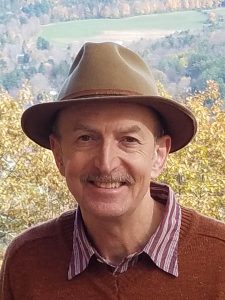 SEPTEMBER 27, SUNDAY. 3 pm – O N L I N E
SEPTEMBER 27, SUNDAY. 3 pm – O N L I N E
Mr. Loew will discuss the safe handling, care, and proper storage of paper-based records, books, and photographs.
You will find out what you can do on your own to preserve your family treasures, and when you need an expert’s help.
Steven Loew
Steven Loew is a book and paper conservator in private practice in Baltimore.
From 2009 to 2019 he was a senior conservator at the National Archives and Records Administration.
He was the conservator in charge of the treatment and preservation of the general collections of the Sheridan Libraries at Johns Hopkins University from 2000 to 2005.
Mr. Loew’s principal training in conservation was while working as a conservation technician for the Smithsonian Institution Libraries from 1990 to 1995.
Suppliers of Materials for Preserving Paper, Books, and Photographs:
Archival Products
Des Moines, Iowa
www.archival.com
800-526-5640
Gaylord Archival
Syracuse, New York
www.gaylord.com
Hollinger Metal Edge
Fredericksburg, VA
www.hollingermetaledge.com
800-634-0491
University Products
Holyoke, MA
www.universityproducts.com
800-628-1912
Information about Conservators:
American Institute for Conservation
Washington, DC
www.culturalheritage.org
202-452-9545
You Located the Ancestral Village of Your Ancestor – Now What?
Nancy Waters
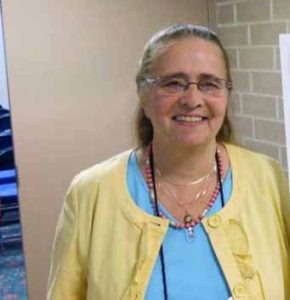 OCTOBER 25, SUNDAY, 3 pm – O N L I N E
OCTOBER 25, SUNDAY, 3 pm – O N L I N E
Now that the ancestral village of your ancestor has been located, what’s next?
How do you find more information?
Explore the next steps overcoming barriers like language and an ocean.
Nancy Waters
Nancy Waters is a researcher, lecturer, college instructor, and award-winning author. She has extensive speaking experience throughout the Maryland, Pennsylvania, and Virginia area. She has presented at national and regional conferences including NGS, FGS, and Rootstech.
She has published four family history books. The 1997 Heart of America Genealogical Society Award of Excellence was awarded to Nancy’s first book, and she earned the 2007 National Genealogical Society Genealogical Writing Competition Award for Excellence: Genealogy and Family History for her second book. This book also earned the 2007 Maryland Historical Society, Sumner A. Parker Award, for best genealogy of a Maryland family.
Nancy is the past Managing Editor for the Maryland Genealogical Society Journal, past Secretary for the International Society of Family History Writers and Editors (ISHWE), past Director of the Genealogical Speakers Guild, is an instructor for continuing education at Howard Community College, Columbia, Maryland, teaching Microsoft Office applications, adjunct instructor at Carroll County Community College, teaching genealogy classes, and is the registrar for her DAR chapter..
She is a certified Microsoft Professional and member of multiple genealogical and historical societies.
DNA Clustering Tools and Genetic Networks
Andrew Hochreiter
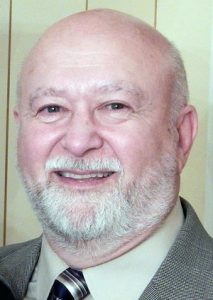 NOVEMBER 22, SUNDAY, 3 pm – O N L I N E
NOVEMBER 22, SUNDAY, 3 pm – O N L I N E
This presentation will discuss the value of DNA clustering to help break through brick walls.
The ability to group your DNA matches into common ancestral lines can be the start of solving many genealogical questions.
We will examine clustering techniques from the manual Leeds Method to the many automated tools.
More importantly, we will discuss going beyond the colorful images to applying the Genetic Networks to your family research.
The goals of clustering are to divide DNA matches into groups related to each other and to find the common ancestor or couple.
Clustering can help organize and make sense of DNA matches and shared segments to focus your research efforts.
Andrew Hochreiter
Andrew Hochreiter is a genetic genealogist who manages multiple DNA surname projects and has successfully applied DNA to trace several related family branches overseas. He has 30 years of experience in genealogical research with 15 years involved in genetic genealogy. Mr. Hochreiter instructs continuing education courses in basic and advanced genetic genealogy at Howard Community College in Columbia, MD. He leads a Beginning DNA focus group at the Washington DC Family History Center and was a facilitator for the genetic genealogy module of the on-line Genealogical Research Course at Boston University. Mr. Hochreiter belongs to numerous genealogy organizations and writes a DNA column for the quarterly journal of the Mid-Atlantic Germanic Society. He was featured on two Bavarian TV programs for his genealogical work tracing relatives in Germany using DNA and a guest of Jeff Salkin on Direct Connections on Maryland Public Television. Genetic genealogy has emerged as an important tool for genealogists and family historians. Mr. Hochreiter is a great enthusiast and user of genetic genealogy as another valuable means to trace family history.
2 0 2 1
Deeper Analysis: Techniques for Successful Problem Solving
Elissa Scalise Powell, CG, CGL
 FEBRUARY 28, SUNDAY, 3 pm – O N L I N E
FEBRUARY 28, SUNDAY, 3 pm – O N L I N E
- The Genealogical Proof Standard states that analysis and correlation of data is necessary before we can say something is proven, but what techniques are best?
- Many people collect information but don’t know how to manipulate it for evidence analysis.
- Spreadsheets, timelines, maps, charts and tables are a few of the techniques that will be discussed to pull out evidence needed to answer research questions.
Elissa Scalise Powell, CG, CGL
Elissa Powell is co-director of the Genealogical Research Institute of Pittsburgh (GRIP); past-president of the Board for Certification of Genealogists, the coordinator since 2007 of the IGHR “Genealogy as a Profession” course in Athens, Georgia, and author of two chapters in the 2018 Professional Genealogy book. She was an instructor and creator for part of Boston University’s Genealogical Research Certificate course, and past SLIG course coordinator. She has been involved in ProGen Study since the beginning, being the mentor for groups 1, 25, and 50. She was honored with the Association of Professional Genealogists 2017 Professional Achievement Award.
Lead The Charge: Go Social with Military Research
Margaret M McMahon
 MARCH 28, SUNDAY, 3 pm
MARCH 28, SUNDAY, 3 pm
Military research leads us to the facts about an ancestor’s service, complete with dates and places. We can learn about the battles and other significant events. But to bring their full experience in service to life takes more.
So, after finding the military organization(s) in which an ancestor served, and after using resources from NARA and other archives, it is time to lead the charge and “go social” and bring dimension to our ancestor’s military experience.
- Going social is an approach to both leaving and finding breadcrumbs on the internet.
- I will show how to establish strongholds using different forms of social media, and to create communities to bring others with the same interest together.
- These communities extend farther than genealogical circles, opening up to include all descendants and others interested in the organizations.
- They provide a place where people can share personally held artifacts as well as their knowledge.
- The connections in communities that form over social media can prove very rewarding, inspiring collaboration to further the understanding of ancestors’ military service.
- In the presentation I share how I used Facebook, Twitter, Blogs and more to go social with military research.
Margaret M. McMahon
Margaret M. McMahon has always collected family stories. She has a PhD in Computer Science and Engineering. She has amassed decades of experience as a flight test and systems engineer, and as a professional educator, teaching graduate and undergraduate students. Her experience includes speaking at international technical conferences.
When her son was born, family lines became more relevant, so she focused her engineering and educational skills and talents on her newfound passion to combine family stories with factual records. She researches, lectures and writes about genealogy and military history and is the author of numerous books on those subjects. She is the Unofficial Historian for the 51st Pioneer Infantry Regiment. She has been speaking about genealogical topics in the Annapolis-Baltimore-DC-VA area for over ten years as a speaker at societies, libraries, local conferences and at RootsTech Connect. She is currently in the ProGen Study Group 46.
Information about her and her books can be found at: https://aweekofgenealogy.com
Using Land Records: Your Key to Unlocking Family History Puzzles
Julie Saylor
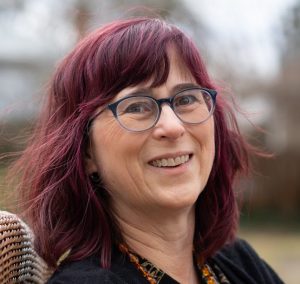 APRIL 25, SUNDAY, 3 pm – *** ONLINE ***
APRIL 25, SUNDAY, 3 pm – *** ONLINE ***
- Family history researchers use land records for many different aspects of their research.
- They can help you to find or prove relationships between ancestors, break through brick walls, or even to make it possible to find and visit an ancestor’s house or property.
- Join Maryland Department librarian Julie Saylor as she discusses how you can find and use this important resource.
Julie Saylor
Julie Saylor is a lover of history, architecture and the extraordinary stories of everyday people. For the past 32 years she has served as a library associate with Enoch Pratt Free Library in many different departments. Her current home is the Maryland Department, where she has created public programs about house history, historical cooking, and land records. Julie is the mother of two grown daughters and lives in northeast Baltimore where she fills her empty nest with three cats, two chickens, a dog and a guinea pig. In her spare time she loves to read nonfiction and try out new vegetarian recipes. She currently is researching for a program on the history of spirit mediums, magicians, and the Ouija Board.
Hidden Secrets and Happy Times
Lisa Woolfson
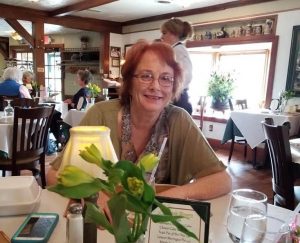 MAY 23, SUNDAY, 3 pm *** ONLINE ***
MAY 23, SUNDAY, 3 pm *** ONLINE ***
- This is a discussion of a family history with ancestors in various wars, related documents and where we found them.
- There are answers questions such as, what happens if your wife dies while you are on the front?
- After the civil war the family farms in Carroll County then moves to Granite, Baltimore County, where we’ll learn some history of the quarrying industry and the area.
- Finally, we’ll see newspaper articles and have a discussion of family tragedies that nobody talked about.
- All this sets the stage for a future discussion of why a non-paternal event was handled the way it was.
Lisa Woolfson
Lisa Woolfson has been researching and documenting her family’s history for twelve years. She has shared her research skills to help others find “hidden secrets and happy times” in their own family’s history. Lisa is a retired school teacher whose last position was at Parkville Middle School in Baltimore County. She has a B.S. in Health Science from Towson University and a M.S. in School Guidance from McDaniel College.
City Directories: No Town Too Small, No Clue Too Little
Thomas MacEntee
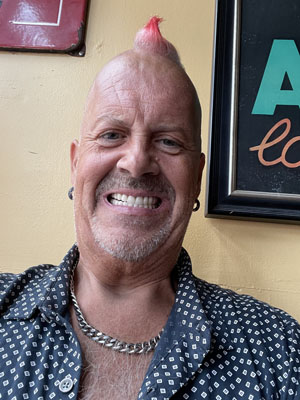 SEPTEMBER 26, SUNDAY
SEPTEMBER 26, SUNDAY
General Meeting: 2:30 pm – O N L I N E
Speaker: 3:00 pm – O N L I N E
Most genealogists aren’t taking full advantage of all the clues available in city directories.
Learn how go beyond a mere “lookup” of your ancestor and their family.
Understand how city directories were created, the secrets of various abbreviations, and how to use the F.A.N. Club approach to getting the most information possible.
Participants will learn the history of city directories, how important they were to even the smallest town, and how to extract every possible clue for your genealogy research.
We’ll cover digital/online directories, how to deal with numbering grid and street name changes, what those “weird codes” mean and more.
For more details select → PROGRAM OF SPEAKERS
ZOOM MEETING DETAILS
The BCGS board has decided to hold our regularly scheduled meeting on September 26th at 2:30pm virtually using Zoom.
A link to the meeting will be emailed Monday, September 20.
During the 2:30 to 3:00 time frame we will be having a computer users group and also the election of new officers for the society.
The new officer nominees are:
- Greg Burton, President
- Donna Carter, Vice-President
- Dave Powell, Treasurer
- Anne Wieliczko, Recording Secretary
- Ken Zimmerman, Corresponding Secretary
Since it is difficult to vote and count votes on Zoom we are asking the members to approve the new slate of officers by unanimous consent. Anyone who wishes to vote no or disagrees with this method please email info@baltimoregenealogysociety.org prior to the meeting.
For those that cannot make the meeting or for those that find the meeting is full, will have the opportunity to view a recording of the live meeting hosted at your convenience.
Everyone will be sent a link to the recording a few days after the meeting.
Our speaker has graciously allowed us to record the live session.
Thank you for your patience, until we resume live meetings.
Heimat Found: Researching in Germany
Debra Hoffmann
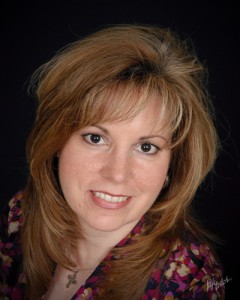 OCTOBER 24, SUNDAY, 3 pm
OCTOBER 24, SUNDAY, 3 pm
Once the German town of origin is identified, what are the next steps necessary to access the records?
This lecture will outline how to proceed with research in German records.
Debra A Hoffmann
Specializing in Maryland and German research, Debra A. Hoffman is a professional genealogist and owner of Hoffman Genealogical Services.
She earned a Professional Learning Certificate in Genealogical Studies (PLCGS)-German Records as well as a certificate in Family History from BYU.
Debra is the former Assistant Director of the Genealogical Institute on Federal Records.
Surprise… DNA just uprooted my family tree
Andy Hochreiter
 NOVEMBER 28, SUNDAY, 3 pm
NOVEMBER 28, SUNDAY, 3 pm
– – – – – – – – – – – – –
We will have regular library hours on our Sunday meeting.
Our speaker will speak at our library and will appear via ZOOM online.
–
– – – – – – – – –
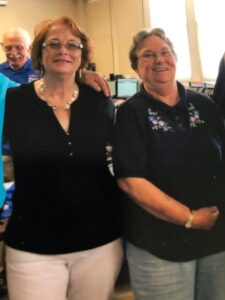 Lisa and Linda will share their experience of finding each other with a DNA test. This will be an opportunity for our attendees to share any experiences they have had and ask any questions of Andy about DNA testing .
Lisa and Linda will share their experience of finding each other with a DNA test. This will be an opportunity for our attendees to share any experiences they have had and ask any questions of Andy about DNA testing .
Zoom Meeting Details
- The BCGS board has decided to regular hours November 28th and via Zoom.
- 2 – 2:30 computer group
- 2:30 – 3 general meeting
- Our speaker will appear via ZOOM link and will be available online.
- A link to the meeting will be emailed Monday, November 22.
- Thank you for your patience, until we resume live meetings.
–
–
2 0 2 2
Uploading Pictures and Stories into the Family Search’s Memories Feature
Michael King
Mary Beth Malooly
FEBRUARY 27, SUNDAY, 3 pm
Zoom Available
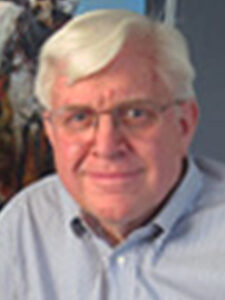 Demonstrating on a projector in person or on Zoom how to upload photos, stories, and documents of their deceased ancestors onto their tree.
Demonstrating on a projector in person or on Zoom how to upload photos, stories, and documents of their deceased ancestors onto their tree.
Mary Beth Malooly will also spend a few minutes telling us about her experiences with cemetery research and dealing with various cemeteries.
–
–
Michael King
Mr. King is retired from the practice of architecture in 2014. Since that time, he has pursued an avocation in fine art as an oil and watercolor painter.
Mr. King has been peripherally involved the genealogy since 1956. His current assignment in his congregation of the Church of Jesus Christ of Latter-Day Saints is that of Family History lead. As such, he coordinates the family history efforts of Family History consultants and the general membership of the congregation.
For over ten years Mr. King has been invited to make presentations on FamilySearch – the genealogy application published by the church. These presentations have included many of the libraries in the Baltimore area as well a senior centers and retirement communities.
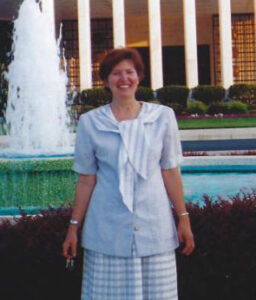 Mary Beth Malooly
Mary Beth Malooly
I’m a member of the Church of Jesus Christ of Latter Day Saints, and my calling in the church is as family history consultant.
I call myself a ‘scout’ since I seek out members and non-members who may be interested in learning how to create their family tree on FamilySearch, a free website of the church.
I contact senior centers and libraries in Baltimore County and City, as well as genealogical societies, like your own Baltimore County Geneological Society in Parkville when I contacted Ken Zimmerman in Sep. 2021 before the pandemic took hold again, to ask if they’d be interested in having Michael King, our family history lead, teach a free class on either the beginning basics of FamilySearch or an advanced ‘Memories’ class – demonstrating on a projector in person or on Zoom how to upload photos, stories, and documents of their deceased ancestors onto their tree. If organizations are interested, then I set up appointments for Michael King to teach there. We have taught so far at several Enoch Pratt libraries and Baltimore County senior centers, and are always looking to add more places to teach, since the church is top-notch in family history and we are seeking to make this information accessible to all communities everywhere.
I’m retired from working in sales at several Baltimore County cemeteries over the years, including Parkwood, Gardens of Faith, Holy Redeemer, and Loudon Park. I now work part-time selling hot dogs to golfers at Suburban Country Club. But my main goal is writing books about stray animals I have known and loved (mostly cats), and writing a book about my mother’s growing up years during the Great Depression in train town, Brunswick, MD.
The 1950 Census: It’s Coming Soon
Claire Kluskens
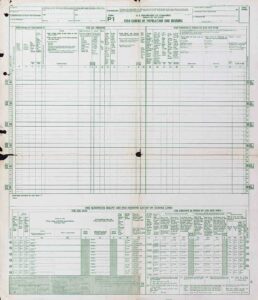 MARCH 27, SUNDAY, 3 pm
MARCH 27, SUNDAY, 3 pm
- The 1950 census will be released to the public on April 1, 2022. Are you ready?
- This, one-hour pre-recorded webinar will tell you what you need to know about the 1950 federal census, which will be available on the special National Archives 1950 census website.
- We’ll review the questions that were asked, the interesting innovations and changes the Census Bureau made during this census, the Indian Reservation Schedules, differences between the 1940 and 1950 censuses, and much more!
After the webinar Kenneth Zimmerman will be take questions.
Claire Kluskens
Calire was the speaker on digital projects archivist and genealogy/census subject matter expert at the National Archives and Records Administration (NARA), blogs about the 1950 census at the History Hub. She spearheaded the completion of over 330 NARA microfilm publications and currently works on projects that provide digital access to records in the online National Archives Catalog.
How to Look for Your 1950 US Census Data
Kenneth Zimmerman
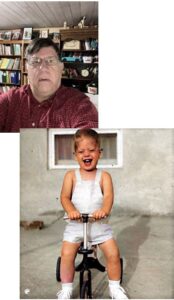 APRIL 24, SUNDAY, 3 pm
APRIL 24, SUNDAY, 3 pm
- Locate the April 1, 1950, address for ancestor or relative: cover resources such as newspapers, correspondence, city directories, address books.
- Use the Steve Morse One Step website to locate Enumeration Districts. For rural addresses, the One Step site will point you towards the Enumeration District maps to review visually.
- Create a spreadsheet or list of each person, basic info and their 1950 US Census Enumeration District.
- Use this information to access the 1950 US Census for Baltimore City and Baltimore County, Maryland on line.
Kenneth E Zimmerman
Mr Zimmerman was a past BCGS President, past Notebook/Newsletter Editor and still very active in BCGS. He does professional genealogy research (familythreadsgnealogy.com). Collects Baltimore, Maryland maps and Atlases/City Directories. Retired from Federal Government for 40 years of service and 20 years of Military Service.
Creating an Individualized Genealogical Educational Plan.
Margaret McMahon
 MAY 22, SUNDAY, 3 pm
MAY 22, SUNDAY, 3 pm
- Whether your goal is to become a professional genealogist, to better understand an ancestor’s life or break down your own brick walls, your own educational plan can help you focus on what you want to learn.
- Having an individualized education plan clarifies your goals as well as providing accountability.
- Explore the types of resources that are available to use, and how to put together your own plan.
Margaret M. McMahon
Margaret M. McMahon has always collected family stories. She has a PhD in Computer Science and Engineering. She has amassed decades of experience as a flight test and systems engineer, and as a professional educator, teaching graduate and undergraduate students. Her experience includes speaking at international technical conferences.
When her son was born, family lines became more relevant, so she focused her engineering and educational skills and talents on her newfound passion to combine family stories with factual records. She researches, lectures and writes about genealogy and military history and is the author of numerous books on those subjects. She is the Unofficial Historian for the 51st Pioneer Infantry Regiment. She has been speaking about genealogical topics in the Annapolis-Baltimore-DC-VA area for over ten years as a speaker at societies, libraries, local conferences and at RootsTech Connect. She is currently in the ProGen Study Group 46.
Information about her and her books can be found at: https://aweekofgenealogy.com
Researching Your Family History Using the Enoch Pratt Free Library/Maryland
Caprice DiLiello
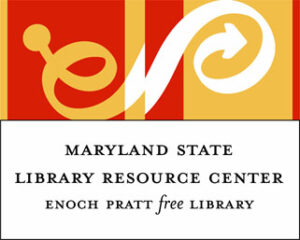 SEPTEMBER 25, SUNDAY, 3 pm
SEPTEMBER 25, SUNDAY, 3 pm
- We will have regular library hours on our Sunday meeting.
- We will meet in-person and the speaker will be available via ZOOM.
For long time researchers and those beginning your family history journey, join us at the BCGS library to find out how the Enoch Pratt Free Library/State Library Resource Center’s collection and resources can help you research your ancestors.
Get a fresh perspective and updated information on topics including the types of materials to be found in the library’s collection, how to access these materials, how the EPFL librarian subject specialists can help, how you should prepare for your visit, and more.
Caprice DiLiello
Manager of the Maryland Department, Enoch Pratt Free Library/State Library Resource Center.
The Adoption Case of Amy G.
Janet Hall Werner
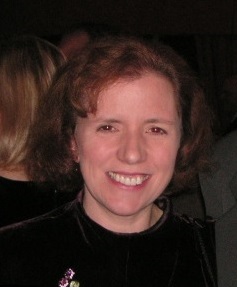 OCTOBER 23, SUNDAY, 3 pm
OCTOBER 23, SUNDAY, 3 pm
Janet Hall Werner will present a case study to provide an example of how to solve current-day adoption cases using autosomal DNA and will highlight particular pitfalls that can bedevil a genetic genealogist seeing to find an adoptee’s biological parents.
- We will have regular library hours on our Sunday meeting.
- We will meet in-person and the speaker will be available via ZOOM.
Janet Hall Werner
As a professional genealogist and family historian with expertise in Irish and German immigration, Janet Hall Werner is a graduate of the Research Institute of Pittsburgh and the Salt Lake Institute for Genealogy with 20+ years’ experience in genealogical research. She also has roles with the Fairfax Genealogical Society and the Genetic Genealogy Special Interest Group. Janet will share her insight to solve research problems using DNA, determining ancestral villages, proving and disproving lineages as well as helping adoptees to find their birth parents. Her own ancestry being overwhelmingly English, Janet is also a Mayflower descendant. Before taking on the world of genealogy, Janet had a full law and Political Science career in congressional relations on Capitol Hill.
Marshy Point – Cassandor Hamilton Site
Daniel Dean
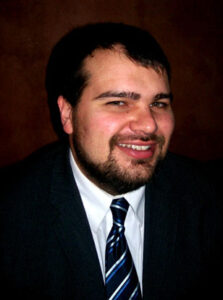 NOVEMBER 27, SUNDAY, 3 pm
NOVEMBER 27, SUNDAY, 3 pm
Until recently, a small, hidden cemetery was found deteriorating in the woods along the trails at the Marshy Point Nature Center in Middle River.
In conjunction with Baltimore County Recreation and Parks, the Nature Center Council was able to restore a broken headstone with over 200 years of unknown history.
As Daniel researched who the figure of “Cassandor Hamilton” was, surprising connections were found between the surrounding area and the life of the interred: Cassandra Hamilton, nee Bond.
Join us as we journey into the late 18th century story where Daniel will discuss the methods used in extracting and piecing these relations and connections together.
Presentation: In-Person and via Zoom.
Daniel Dean
Daniel Dean is the Research Chair for the Marshy Point Nature Center Council. An amateur local historian, he enjoys trying to solve questions of the past. During the week Daniel is the wholesale manager for the Baltimore Coffee and Tea Company. When not spending time with his family, he can be found metal detecting, bottle dump picking, volunteers for archaeology projects and learning about the items he finds.
2 0 2 3
Finding Overseas Ancestors: An Irish Case Study
Lois Abromitis Mackin, Ph.D.
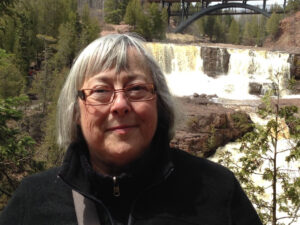 FEBRUARY 26, SUNDAY, 3 pm
FEBRUARY 26, SUNDAY, 3 pm
Find out how Lois Mackin’s research journey allowed her to provide color and context to give a fuller picture of a family living in Wisconsin.
Whether you have Irish relatives or not, you will find out that in most cases, it will be U.S. records that point to the overseas origins of immigrant ancestors.
This case study focuses on a late 19th C family where, by broadening the search to other family members, one can eventually find answers in Irish sources.
Presentation: via Zoom.
Lois Abromitis Mackin. Ph.D.
Lois is a professional genealogist focusing on American and English research. She writes and teaches about genealogical records and methods, including using DNA. Currently, Lois is a state officer for several lineage societies and a member of the Education Committee of the Irish Genealogical Society International. Over the years, she has been involved in many societies such as the Minnesota Genealogical Society DNA interest group, the Northland chapter of the Association of Professional Genealogists, the Minnesota Genealogical Society as well as a past member of the National Genealogical Society’s Delegate Council Steering Committee.
Researching the History of a House
Julie Saylor
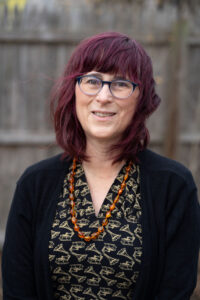 MARCH 26, SUNDAY, 3 pm
MARCH 26, SUNDAY, 3 pm
- Just because a house isn’t a famous landmark doesn’t mean it doesn’t have a rich history.
- Researching a building or property can require knowledge of many of the same resources as genealogical research.
- It can also be an exciting trip into the lives of those who lived or worked there.
In this program, Julie Saylor, librarian in the Maryland Department of the Enoch Pratt Free Library, will talk about where to find government records related to a building or property, how to research historical archives for information, and what to look for on site for clues.
General Meeting: In-Person
Speaker Presentation: via Zoom.
Julie Saylor
She has served as a library associate with Enoch Pratt Free Library for over 30 years, in many different departments at Central Library. Her current home is the Maryland Department, where she has created public programs about house history, historical cooking, land records, and the history of Spiritualism in Baltimore. Julie is the mother of two grown daughters and lives in northeast Baltimore.
Baltimore as a Canning Capital
Jack Burkert
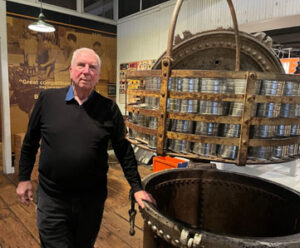 APRIL 23, SUNDAY, 3 pm
APRIL 23, SUNDAY, 3 pm
Join us at the BCGS library for an in-depth look at Baltimore’s canning industry.
Learn how for one hundred years Baltimore was a major player in the food canning industry, becoming the center of canning in the United States.
More than one hundred packing houses shared space with can-making factories and the homes of thousands of workers.
Come listen to the story of the workers who made canning happen and how they and their children lived and worked.
General Meeting: In-Person
Presentation: In-person.
Jack Burkert
Baltimore native Jack Burkert has worked as a museum educator at the BMI for 12yrs. He graduated from the University of Maryland and spent his career in various educator roles within the Baltimore City School system, Pennsylvania State University, with private employers and in his own consulting firm. Jack’s specialty is his research into the history of Baltimore, its port, businesses, people and immigration.
Discovering the Details: Genealogical Resources at the Maryland State Archives
Rachel Frazier
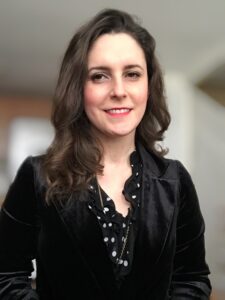 MAY 28, SUNDAY, 3 pm
MAY 28, SUNDAY, 3 pm
Spend the afternoon at the BCGS library for an updated look at the digital and paper holdings at the Maryland State Archives.
Reference Archivist Rachel Frazier will discuss the increased availability of records now available online since the pandemic, as well as new finding aids.
She will also focus on resources and collections to help solve difficult research challenges for Baltimore County genealogy and beyond.
General Meeting: In-Person
Presentation: via Zoom.
Rachel Frazier
As Search Room Coordinator at the Maryland State Archives, Rachel Frazier has over a decade of experience assisting visitors with their genealogical, historical, and legal needs. Rachel has presented at local history and library institutions, and starting in 2020, has been part of the team working to adapt the Archives’ services at a time of crisis.
Ten Things a Genealogist Should Do Before Leaving a Library or Archives
Melissa Barker
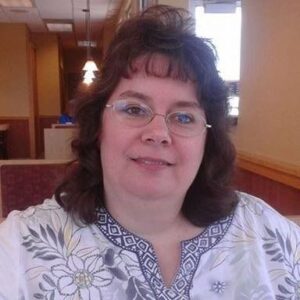 SEPTEMBER 24, SUNDAY, 3 pm
SEPTEMBER 24, SUNDAY, 3 pm
As we enter the third act of the year and get back to genealogy research mode after our summer break, let’s take time to reset our thinking and focus on how to make the most of the holdings available at a library/archive center.
As you get home from a research trip, don’t find yourself in the trap of “I forgot to do that!”.
Learn the 10 things genealogists should do before leaving a library or archives to make the research trip a success.
General Meeting: In Person
Presentation: via Zoom
Melissa Barker
Melissa Barker is a Certified Archives Manager and Public Historian currently working at the Houston County, Tennessee Archives & Museum. She is affectionately known as The Archive Lady to the genealogy community. She lectures, teaches, and writes about the genealogy research process, researching in archives and records preservation. She conducts virtual presentations across the United States and other countries for various genealogy groups and societies. She writes a popular blog entitled A Genealogist in the Archives and is a well-known published book reviewer. She has been a Professional Genealogist for the past 19 years with expertise in Tennessee records. She has been researching her own family history for the past 33 years
Eastport/Annapolis Legacy of Honor
WWI and WWII military records
Denise Robinson
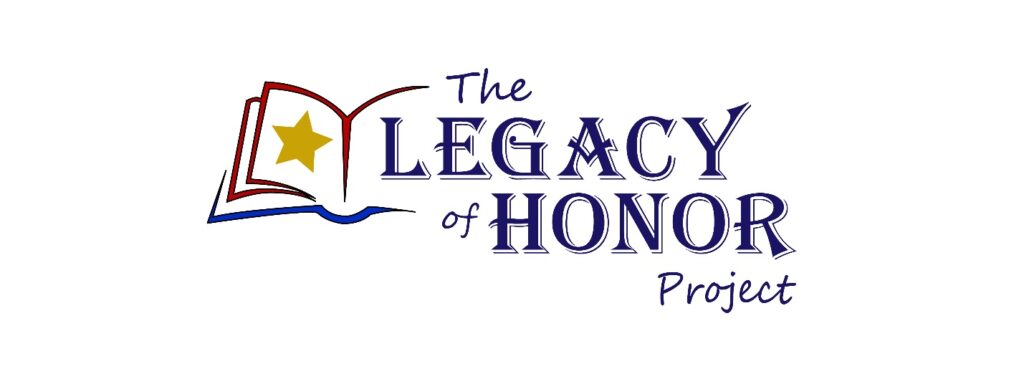 OCTOBER 22, SUNDAY, 3 pm
OCTOBER 22, SUNDAY, 3 pm
Every veteran has a story.
This presentation will help you get started on finding information about your ancestors’ WWI and WWII service.
Denise will share what she has learned over the years.
- When is it better to use Family Search versus Ancestry?
- How to navigate the often frustrating Fold3.
- Where to find the hidden gems of service records and histories online.
– – – – – – – – – – – – –
Gain insight into: The Veterans Master Index • Enlistment papers • Morning reports • After-action reports • IDPFsVeterans • Compensation Papers • How you can help open the access to WD AGO 53-55 Separation Papers.
General Meeting: In Person
Presentation: In Person
→ https://www.facebook.com/groups/369539487117651/
Denise Robinson
What started out as a mission for Denise Robinson to locate the final resting place of the first man to die in WWI from Annapolis has developed into The Legacy of Honor Project. Seven years later, the project researches and tells the stories of the men from Annapolis and Anne Arundel County who died while serving in WWI and WWII. Not just how they died, but who they were before they put on their uniform. From placing flags and flowers on our fallen’s graves to the recent “70 for 70 Missing Man Table” campaign, the Legacy of Honor Facebook page and the Legacy of Honor Family Trees, Denise Robinson has worked tirelessly to honor and remember our fallen and the families they left behind.
Genealogical Research for Adoptees, Foundlings, and Brick Walls
Shannon Combs-Bennett
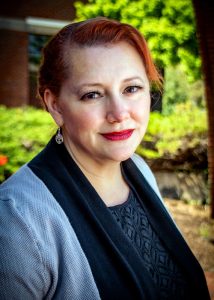 NOVEMBER 26, SUNDAY, 3 pm
NOVEMBER 26, SUNDAY, 3 pm
General Meeting: In Person
Presentation: via ZOOM
DNA testing is often undertaken to help a person solve a genealogy issue where there is little to no documentation.
It is often because there is a gap or break in the lineage.
It could be due to an adoption, abandonment, estrangement, misattributed parentage, or because no one wrote down the information.
These situations can all be tackled with the same research plan and DNA analysis.
In this presentation, you will learn how to break down genealogical issues like these into ways that you can (hopefully) solve your questions.
Shannon Combs-Bennett
Shannon Combs-Bennett resides in Northern Virginia. From there she writes and presents on a variety of topics across the US and internationally from genetic genealogy to methodology techniques. Shannon is a Qualified Genealogist (QG) through the Register of Qualified Genealogists. She earned her Bachelor of Science in biology with an emphasis in genetics from Indiana University and her Master of Science in Genealogic, Heraldic, and Paleographic Studies from the University of Strathclyde in Glasgow. Currently, Shannon is a doctoral student in History and Genealogical studies at the University of Strathclyde.
2 0 2 4
FINDING THAT NEEDLE IN A HAYSTACK – Even when you are not looking.
Lisa Woolfson
 FEBRUARY 25, SUNDAY, 3 pm
FEBRUARY 25, SUNDAY, 3 pm
General Meeting: In Person
Presentation: In Person
William Buckman the Immigrant.
Treasures, that’s what I call them Those little pieces of information that we dig and dig for or those that show up unexpectedly are what keeps genealogists going back for more. You never know what you are going to find in the most unlikely of places.
- The beginning of this story starts at a house in Granite, Baltimore County, MD.
- Our second stop is the book table at the Baltimore County Genealogical Society.
- Next we will journey back in time to examine the exciting story of Willliam Penn and his friend (my seventh great grandfather) William Buckman.
- The adventure ends up in two graveyards in Carroll County, MD.
You’ve probably been by them before and never knew of the deep American history that lies beneath the surface of those grounds.
LISA WOOLFSON
Lisa Woolfson is a genealogist who has been researching her family and the families of others for thirteen years. She has been writing and presenting her family’s history for the Granite Historical Society, Baltimore County MD, the Historical Society of Baltimore County, the Maryland Center for History and Culture, the Frederick County Genealogical Society, Heritage Frederick, the Bucks County Genealogical Society, the Bucks County Historical Society, the Spring Grove Area Historical Preservation Society.
Before Lisa was a genealogist, she was a schoolteacher. She has a B.S degree from Towson University and an M.S. degree from McDaniel College (formerly Western Maryland College). She taught for private schools, Baltimore County Public Schools, and Carroll Community College in Westminster, MD.
“Stories in Stone” : Mount Olivet, Frederick’s Garden Cemetery
Chris Haugh
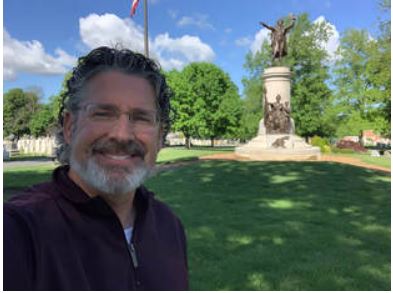 MARCH 24, SUNDAY, 3 pm
MARCH 24, SUNDAY, 3 pm
General Meeting: In Person
Presentation: In Person
- Please join us in the BCGS library to listen to Chris Haugh share the history of Mount Olivet in Frederick Maryland.
- Originally opened in 1854, the cemetery has wonderful residents who led full and interesting lives.
- Hear about what the ‘Friends Group’ is currently doing to preserve and restore gravestones and monuments, along with decedent’s records and stories.
- Chris will also highlight some interesting folks with connections to Baltimore.
CHRIS HAUGH
Chris Haugh has a resume filled with award-winning local history presentations. Many were performed as an employee with GS Communications and the Tourism Council of Frederick County For the past eight years, Chris has been busy with a mission to promote and preserve the rich legacy of Frederick’s Mount Olivet Cemetery, all the while running his own history research/writing and consulting business entitled History Shark Productions. He writes a weekly internet blog for Mount Olivet entitled “Stories in Stone,” leads informative walking tours, and oversees the Mount Olivet Preservation and Enhancement Fund and the “Friends of Mount Olivet” membership group. Chris is a frequent lecturer throughout the area, and teaches public history courses for Frederick Community College’s Institute for Learning in Retirement program and more recently under his own History Shark Productions moniker.
Big Changes with BigY: Updates on Y-DNA Testing
Andrew Hochreiter
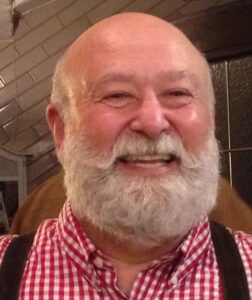 APRIL 28, SUNDAY, 3 pm
APRIL 28, SUNDAY, 3 pm
General Meeting: In Person
Presentation: In Person and Zoom
- The use of Y-DNA results is critical to the research of the patrilinear line.
- This involves the identification of the father’s father’s (and so on) ancestral heritage.
- The presentation will discuss the basics of the Y chromosome, the types of markers used, and how results help find male relatives.
- The Rolls Royce of Y-DNA tests is the BigY 700 test offered by Family Tree DNA (FTDNA).
- This product launched a tsunami of discoveries of Y-DNA mutations that enabled this test to be valuable to track male relativity in genealogically relevant timeframes.
- FTDNA implemented many new “Discover” tools to analyze BigY results making this test the ultimate paternal line research aide.
- Learn about these new tools and how they can benefit surname projects and paternal research.
ANDREW HOCHREITER
Andrew Hochreiter is an avid genetic genealogist, researcher, and educator who manages multiple DNA surname projects and successfully applied DNA to trace several related family branches overseas. He instructs classes in genetic genealogy at Howard Community College and leads a DNA focus group at the Washington DC and Columbia Family Research Centers. He is Chairman of the East Coast Genetic Genealogy Conference and a founding director of the Investigative Genetic Genealogy Accreditation Board (IGGAB). Mr. Hochreiter is a board member at large for the Forensic Genealogy Special Interest Group of the Association of Professional Genealogists and on the board of directors for mitoYDNA.org. He is a great enthusiast and user of genetic genealogy as another valuable means to trace family history.
–


